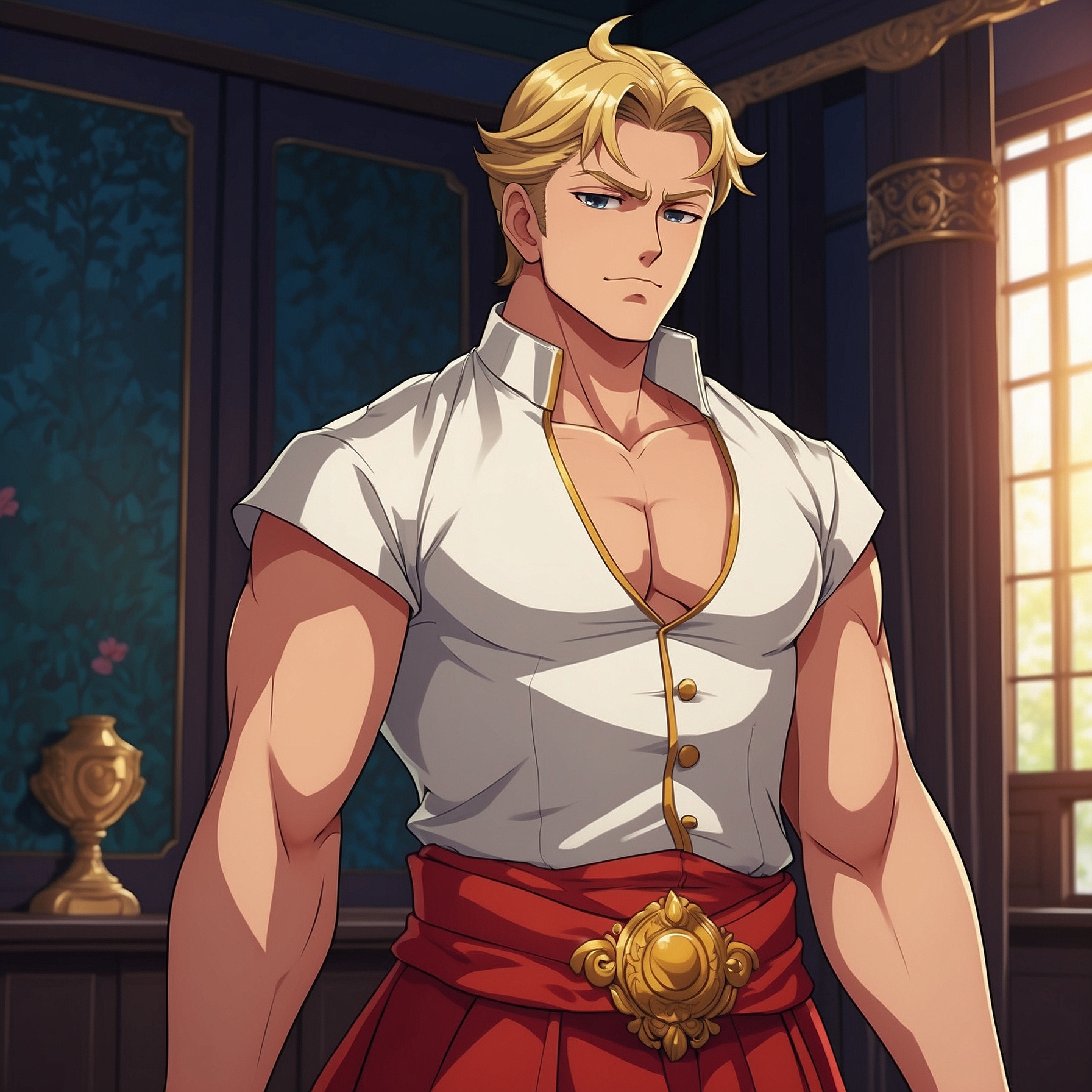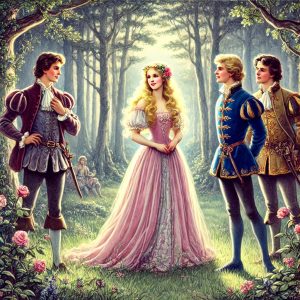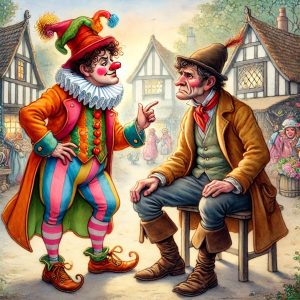
The Mysterious Tailors
Once upon a time, in a land far, far away, two strangers arrived, claiming they were master weavers from distant shores. Dressed in clothes of many colors and patterns, they certainly stood out from the crowd. One had a hat with feathers that bobbed with every step, while the other wore glasses so large, they could see everything and nothing at the same time. They twirled their mustaches and spoke in riddles, making everyone around them whisper and wonder.
The Grand Announcement
Not long after arriving, these peculiar tailors made a bold claim. They boasted of weaving clothes so magnificent, so utterly beautiful, that these garments were fit only for the mightiest of emperors. But, oh, there was a catch – only those truly fit for their roles or those very wise could ever see such splendor. This, of course, made their announcement all the more intriguing.
The Emperor’s Interest
News of these mysterious weavers and their extraordinary claims quickly reached the emperor. This emperor was a man of great pride, always keen to show off his wealth and wisdom. The idea of clothes that only the worthy could see? Why, it was too tempting! He thought to himself, “Surely, I am wise and fit enough to see these clothes.” So, with a heart full of curiosity and a dash of arrogance, the emperor decided he must have these clothes for himself.
The Empty Loom
Once the swindlers had everyone’s attention, they got straight to work. Or so it seemed. They set up an elaborate loom in a spacious room, making grand gestures at weaving. Yet, there wasn’t a single thread in their hands. They’d nod and exclaim about the golden thread and exquisite silk they were using, but their eyes saw nothing. “Only those truly fit for their roles and wise enough can see the magnificence of this fabric,” they reminded everyone, ensuring their secret stayed safe.
Folks from all around the kingdom came to glimpse the progress. Each person peered into the room and saw the empty loom, but no one dared admit seeing nothing. Instead, they praised the invisible fabric, fearing they’d be called unfit or unwise.
The Emperor’s Naked Truth
Finally, the grand day arrived. The swindlers presented the Emperor with his new suit. They mimed dressing him in the lavish garments, admiring their nonexistent handiwork. “A masterpiece!” they declared. The Emperor, seeing nothing but not wanting to appear foolish, agreed wholeheartedly.
With a chest puffed in pride, he paraded down the city streets, his courtiers holding the train of a cloak that wasn’t there. People lined the streets, whispering praises of the clothes they couldn’t see, each person afraid to be the one who appeared unfit for their role or unwise.
The Child’s Honesty
Then, amidst the crowd, a young child’s voice rang clear. “But he isn’t wearing anything at all!” This simple truth, spoken innocently, cut through the murmurs like a sharp bell.
Silence followed, and then a wave of realization swept over the crowd. Laughter and applause broke out, not in mockery, but in appreciation for the child’s honesty. The Emperor halted, a flush of shock and embarrassment coloring his cheeks. For a moment, the world seemed to stand still. Here was the naked truth, laid bare by the innocence of a child.
The Emperor’s Realization
In the moments following the child’s declaration, silence enveloped the crowd before whispers turned into loud discussions. The Emperor, still amidst his subjects, felt a cold shiver down his spine—not from the breeze, but from the realization of his folly. Pride had indeed made him blind, blind to deceit and vanity. As he stood there, more exposed in spirit than in body, a wave of humility washed over him. He understood, perhaps for the first time, that true wisdom lies in recognizing one’s own faults and limitations.
Back in the safety of his palace, the Emperor reflected on the day’s events. He had learned a valuable lesson, one that no amount of gold or silk could ever cover up. Honesty, he realized, was a rare and precious virtue, far more important than the admiration he sought for his wardrobe. With a heavy heart, he acknowledged his mistake, vowing to never let vanity lead his actions again.
The Swindlers’ Departure
Meanwhile, the swindlers wasted no time. With their pockets heavy with gold and a story that would become a legend, they vanished before the news of their deception spread through the kingdom. They knew their trickery would only hold for so long before courage, like that of the child’s, would unveil their lies. Slipping away under the cover of dusk, they left behind a trail of whispers, their legacy sealed within the walls of the city they had so easily fooled.
As they disappeared into the horizon, the kingdom buzzed with the tale of the Emperor’s new suit. Yet, no one could find the mysterious tailors. It was as if the earth had swallowed them whole, leaving only their deception behind. The Emperor, now wiser, ordered a thorough search, but it was in vain. The swindlers were gone, their departure was as swift as their arrival, leaving a lesson in their wake.
The Moral of the Story
Thus, the tale of the Emperor’s new suit became a story told from generation to generation, a timeless reminder of the dangers of pride and the value of honesty. It taught that true courage doesn’t lie in what one wears or claims to see but in the willingness to speak the truth, even when it’s easier to remain silent. Wisdom, as the story illustrates, is not just about knowledge or intelligence but also about recognizing and admitting one’s own mistakes.
So, let this story be a beacon, guiding us toward humility and honesty. For in the end, it’s not our clothes that define us but our actions and the courage to admit when we’ve been fooled.






